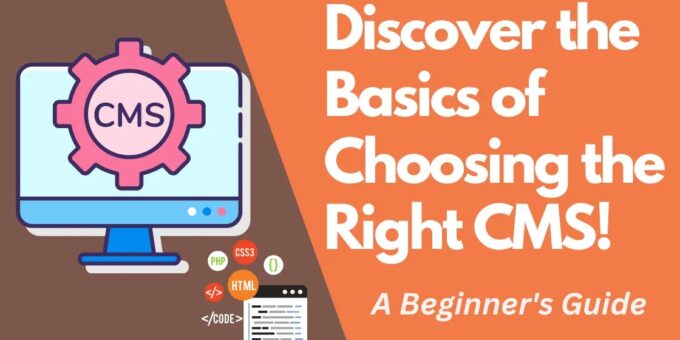
Introduction:
In the competitive digital landscape, a robust Content Management System (CMS) is the cornerstone of a successful online presence. As businesses strive to improve their search engine visibility, selecting a CMS that aligns seamlessly with SEO best practices becomes crucial. In this article, we delve into the factors to consider when choosing a CMS for the best SEO outcomes and explore some of the top contenders in the CMS arena.
- SEO-Friendly Features: When evaluating CMS options, prioritize platforms that offer SEO-friendly features. Look for built-in tools that facilitate meta tag customization, URL structure management, and easy integration of header tags. These features contribute to better on-page optimization, a key factor in search engine rankings.
- User-Friendly Interface: A CMS with an intuitive and user-friendly interface empowers content creators to implement SEO strategies effectively. Easy navigation, content editing capabilities, and straightforward SEO settings enhance the efficiency of managing on-page elements without requiring advanced technical skills.
- Mobile Responsiveness: With mobile devices dominating online traffic, Google prioritizes mobile-friendly websites in search results. Choose a CMS that automatically ensures mobile responsiveness, allowing your website to adapt seamlessly to various screen sizes and providing a positive user experience across devices.
- Page Speed Optimization: Google considers page speed a critical factor in search rankings. Opt for a CMS that prioritizes performance optimization. Look for caching options, image compression features, and efficient code structure to ensure fast-loading pages, contributing to a better user experience and improved SEO.
- Structured Data Markup: Structured data markup, such as Schema.org, helps search engines understand the content on your pages. A CMS that supports and facilitates the implementation of structured data can enhance your website’s visibility in rich snippets and featured snippets, providing more information to users directly on the search results page.
- Content Management Capabilities: A CMS should empower content creators to produce high-quality, relevant content easily. Features like content scheduling, version control, and content categorization can improve content management and organization, contributing to a more coherent and SEO-friendly website structure.
- Security Measures: Security is a crucial aspect of SEO. A CMS with robust security features protects your website from potential threats and vulnerabilities. Regular security updates, SSL support, and secure user authentication mechanisms contribute to a safer online environment, positively impacting search rankings.
- Community and Support: Opting for a CMS with an active community and reliable support channels is essential. A strong community often means regular updates, a wealth of plugins, and shared expertise. Accessible support ensures quick resolutions to any issues that may impact your site’s performance and SEO.
Top CMS Choices for SEO:
- WordPress:
- Widely used with a vast community.
- Rich ecosystem of SEO plugins (e.g., Yoast SEO).
- User-friendly interface and customizable URL structures.
- Drupal:
- Powerful and flexible CMS.
- Robust SEO capabilities with various modules.
- Ideal for complex websites with extensive content.
- Joomla:
- User-friendly and extensible.
- Offers SEO-friendly features and extensions.
- Suitable for medium-sized websites and e-commerce platforms.
- Magento:
- Tailored for e-commerce websites.
- Built-in SEO features and URL customization.
- Supports structured data for product pages.
Conclusion:
Choosing the right CMS is a pivotal decision that directly impacts your website’s SEO performance. Consider factors such as SEO-friendly features, user interface, mobile responsiveness, and security measures when making your selection. Whether you opt for the versatility of WordPress, the flexibility of Drupal, the user-friendliness of Joomla, or the e-commerce focus of Magento, aligning your CMS with SEO best practices is a strategic move toward achieving online visibility and success.


